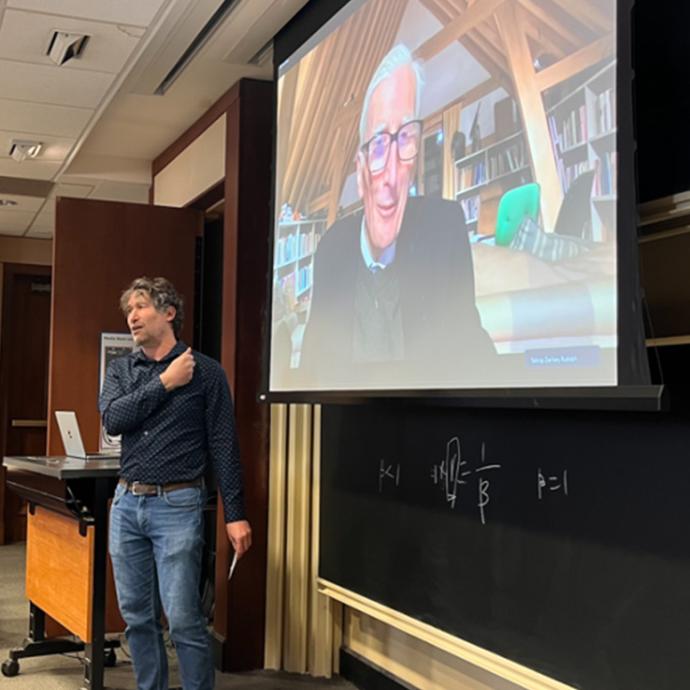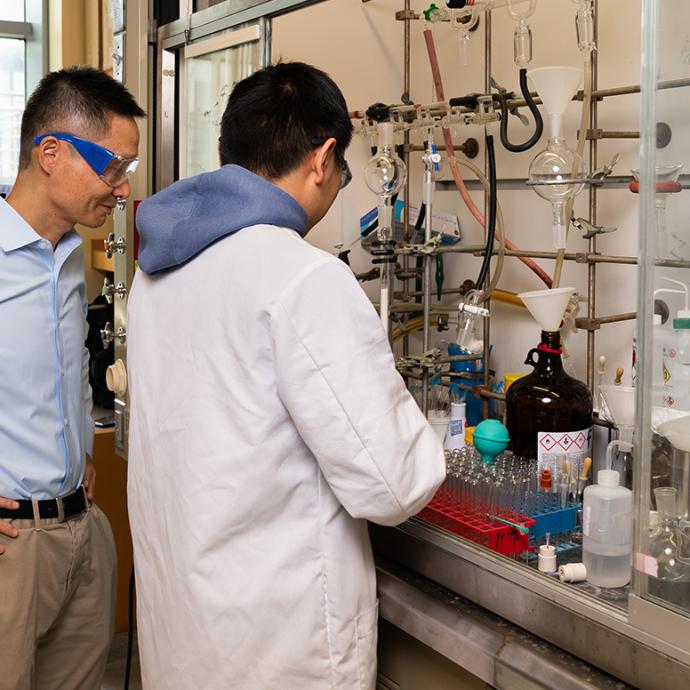“The arrival of strong artificial intelligence has been inevitable for decades; the variable is when—not if,” said Nathan, the genius inventor in the film Ex Machina.
This Academy Award-winning film set the stage for a discussion about the science behind artificial intelligence during the University of Chicago’s eighth “Science on the Screen” event held May 14 at Doc Films.
Artificial intelligence in whichever form—automation, machine intelligence, neural networks, robotics, etc.—is rapidly advancing, despite ethical, social, medical and political concerns.
Bioethics constantly addresses accusations that scientists are playing God, said panel moderator Valerie Gutmann Koch, director of law and ethics at the MacLean Center for Clinical Medical Ethics. “We see it in stem cell research, cloning, genetic research and the use of big data, [the latter of] which comes up again and again in Ex Machina.”
In the film, Nathan thinks of himself as God for having created Ava, a human-like robot. He predicts that such robots will “one day look back on us the same way we look at fossil skeletons…as upright apes in the dust, with crude language and tools, all set for extinction.”
While panelists did not go that far, they discussed predictions that artificial intelligence will continue to displace humans in the workforce. Koch noted that the World Economic Forum recently estimated that five million jobs will be automated in the next four years, and a study by the University of Oxford stated that 47 percent of U.S. jobs are at risk of computerization.
“In the very foreseeable future, there will be the automation of a whole range of tasks that are now considered to be human jobs,” said panelist Risi Kondor, assistant professor of computer science and statistics.
Surprisingly, some skilled professionals, such as doctors and lawyers, both of whom “reason by analogy based on what we know works in the past,” are also at risk of being replaced, Koch said. She noted that the law firm Baker & Hostetler just hired Ross, the world’s first artificial intelligence attorney.
Despite the movie character Ava’s unbelievable abilities and poise, panelists agreed that a robot take over of the world is unlikely in the near future, except in the movies. “One of the most important things humans can do better than machines is deal with situations in flexible ways,” said panelist Sliman Bensmaia, associate professor of organismal biology and anatomy.
“Dealing with uncertainty is very human,” said panelist Nicholas Hatsopoulos, professor of organismal biology and anatomy, although he noted that robots are now able to do this in some ways. “Anthropomorphic robots can work in uneven terrain.”
The sheer dexterity of the human hand, however, is proving to be very difficult to robotize, “because it’s so complex, and we have such smooth control over it,” Bensmaia said.
Still, progress is being made to help amputees, even if the technology will probably never match the exquisite control portrayed by the robots in Ex Machina.
“We’re not going to stop doing what we do,” Bensmaia said. “Technology marches on. As problems come up, you try to deal with them.”
Science on the Screen is sponsored by Doc Films and the Office of the Vice President for Research and for National Laboratories.










 —Prof. Chuan He
—Prof. Chuan He
